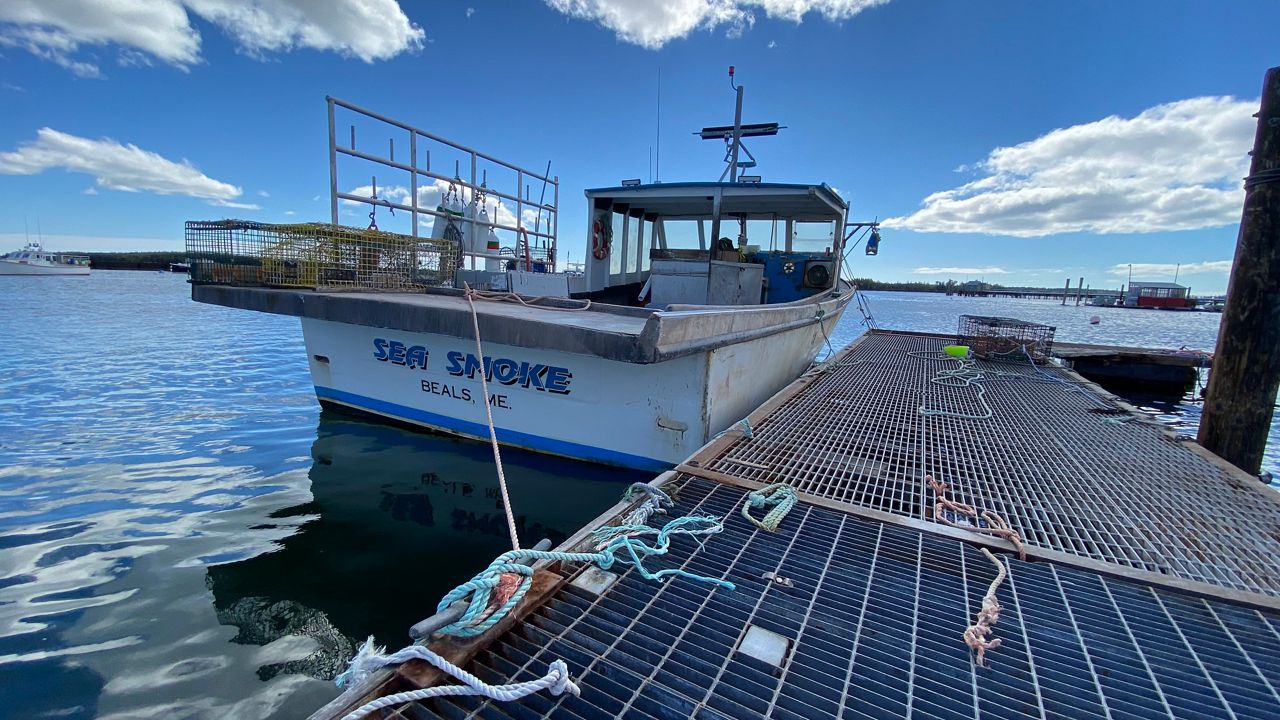Maine lobstermen got a six-year reprieve when the federal government last month delayed implementation of restrictions designed to protect endangered right whales. Now, lobstermen need to prepare for what lies ahead, the leader of the state’s Department of Marine Resources said Wednesday.
“The work now is critical,” DMR Commissioner Patrick Keliher told the Lobster Advisory Council Wednesday. “The buy-in is critical. The data we’re going to be collecting over the next four years is critical. We can’t have infighting. We have to accept big changes are coming.”
Those changes could include additional regulations to make ropes weaker, a move toward ropeless lobster traps and additional restrictions on fishing grounds.
Between now and then, the industry needs to report its harvest to federal officials, participate in a vessel tracking program and find ways to help monitor where endangered whales are migrating, Keliher said.
Maine’s congressional delegation in December inserted language in a massive budget bill delaying implementation of federal rules designed to protect the whales.
The rules would have restricted areas where lobster could be caught and mandated the use of more whale-friendly gear.
Scientists who study North Atlantic right whales said they were blindsided by the delay and question whether the whale population of about 340 will continue to die-off in the coming years.
Studies have shown 86% of the right whale population has been entangled in fishing gear at least once. Because they swim within 50 miles of the shore, right whales are more at risk for ship strikes and entanglements than other whale species.
LOBBYING FOR DELAY
Maine lobstermen have maintained that their lines aren’t to blame for the whale deaths. No deaths have been linked to Maine gear and the last entanglement attributed to Maine was in 2004.
Keliher described a dramatic two-week period late last year when his staff spent time on the phone with congressional staffers at “1, 2, 3 in the morning” as they furiously lobbied for the delay.
“I never in my wildest dreams would have thought the future of the Maine lobster industry would be in the hands of Chuck Schumer and Nancy Pelosi,” Keliher said, referring to the Senate majority leader and former House speaker, both Democrats.
Lobsterman Jeff Putnam of Chebeague Island, chairman of the advisory council, described it as a “David and Goliath” battle.
“Forgive us for having doubts and anxiety about how these regulations would impact our businesses,” he said.
Along with the delay, Congress approved $50 million for a new competitive grant program to help pay for research and development on gear modifications, direct payments to groups such as the Maine Lobstermen’s Association and monies to monitor areas where whales migrate, said Meredith Mendelson, DMR’s deputy commissioner.
Other funds will be available for aerial surveys and acoustic monitoring of the whales, ropeless trap research and a regional collaborative.
In addition, Congress directed the National Oceanic and Atmospheric Administration to revise its whale population models to use criteria that examine threats to whales that are “most reasonably certain to occur” rather than the “worst case,” Mendelson said.
Keliher called the delay an opportunity for the industry to influence the process moving forward.
“We have to accept that this fishery is going to look different in six years,” he said. “What we have now is the time to influence in a positive way the process that will be used with new data.”



